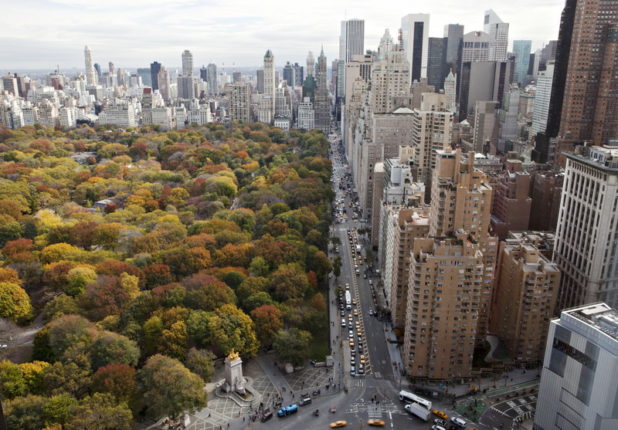The ruling elite is driving people towards a world where the family unit has been destroyed, communities are nonexistent and populations are made up of uncountable minorities mildly hostile to each other, and nature has been replaced by monochromatic concrete rectangles.
It turns out that people will have a hard time being happy in such a scenario.
You don’t have to earn six figures and beyond to be happier, according to a new study. People in communities where there is little cash are as contented as those from rich societies. That’s because it focuses them on other values, including family and the beauty of nature, explain scientists.
The finding questions assumptions that economic growth will boost wellbeing in poor countries.
“In less monetized sites, we found people reported a greater proportion of time spent with family and contact with nature as being responsible for making them happy,” explains lead author Dr. Sara Minarro, a postdoctoral research fellow at the Institute of Environmental Sciences and Technologies at the Universitat Autònoma de Barcelona, in a statement. “But with increasing monetisztion, we found the social and economic factors commonly recognized in industrialized countries played a bigger role. Overall, our findings suggest monetization, especially in its early stages, may actually be detrimental to happiness.”
The study was based on 678 individuals in their mid-20s to early 50s in the Solomon Islands and Bangladesh, two very low-income countries. Overall, participants remarkably high levels of happiness, particularly in communities with the lowest levels of monetization. These were comparable to those found in Scandinavian countries, which typically come top in such surveys.
In fact, where money was in greater use, such as in urban Bangladesh, happiness actually dropped.
“Our study hints at possible ways of achieving happiness that are unrelated to high incomes and material wealth,” says senior author Eric Galbraith, a professor in McGill University’s Department of Earth and Planetary Sciences. “This is important, because if we replicate these results elsewhere and can pinpoint the factors that contribute to subjective wellbeing, it may help us circumvent some of the environmental costs associated with achieving social well-being in the least developed nations.”
…
“This work adds to a growing realization important supports for happiness are not in principle related to economic output,” explains co-author Chris Barrington-Leigh, a professor in McGill’s Bieler School of the Environment. “When people are comfortable, safe, and free to enjoy life within a strong community, they are happy – regardless of whether or not they are making any money.”
The meaning of life was always very simple: family and community.
You have your personal struggles, and you have your life arch, starting from childhood to old age. But at the core of all of that, where you will always find meaning, is with other people.
The natural world (and manmade structures built in concert with the natural world) has always been the canvas of our lives.
This brave new world is unambiguously designed to sever our connections to other people, to isolate us as atomic individuals. The masks and the social distancing are just the final form of alienation.
Actually, they’re not the final form. We still haven’t seen the final form of total alienation.
 Daily Stormer The Most Censored Publication in History
Daily Stormer The Most Censored Publication in History





